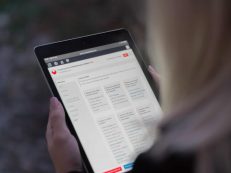The online class is a good way to reach online learners who want to learn but are geographically challenged.
As an online instructor, you find that your non-traditional students will have diverse experiences, backgrounds, and situations.
These will affect how they learn and work with you in your course.
The article covers a range of subjects that are important to consider when planning your online course.
Factors You Need to Consider in Online Course
Here are eight elements you need to understand about your student’s background:
1. Accessibility Issues
Many online learners cannot get good connections to the internet at all times.
They may live in remote locations where there is no access to a fast broadband connection. They may also work in an area where there is no mobile phone coverage.
This means that you may not communicate with them when you want to talk with them.
They can’t also use the modern powerful tools to talk about the class or any issues that come up while working through your course materials or doing the assignments.
You should think about ways to communicate with your online students even if they do not have easy access to the internet at all times.
For example, you could send them messages by text message, or you could use Skype to talk with them on the telephone.
2. Hardware and Software
Some online learners may not have access to a computer that meets the software requirements for taking an online class.
Others might use computers at work or at home shared with other family members, or others who also work from home.
Some of these students might not access their computers when you expect them to do so.
This might include times when you want them to visit specific web sites, work on assignments, or take part in discussion forums.
This will vary from one online student to the next, and it will vary depending on what kind of computer access they have.

Photo by Julia M Cameron on Pexels.
3. Required Formal Education Level
Some learners you will have in your online classes are over 18, but not all of them. Many students will be over 18 but will be late starters in your subject.
For example, they may have worked for several years, or they may have had to support their families financially before getting a formal education.
They may not have the same level of formal education and academic skills as your other students, but they are just interested in learning your subject.
Since there is a difference in their classroom levels, it is important to remember that you will need to help them develop their learning strategies.
Some person of your students may have taken high school courses in your subject, but not enough for them to fully understand the concepts and terminology you use.
4. Potential Learning Styles
Many online learners will take more than one course at a time while they are in your class.
They might take other courses from another instructor or institution or taking other courses that they are teaching themselves (e.g., with a MOOC).
You will need to make sure that you can accommodate your online learners’ workload if they are taking more than one course at a time.
They also might need different course management software to organize their workload.
You might even need to assign your online learner’s different courses to your other students. This way, each of them is not taking on too much work.
5. Studying Time and Schedule
Some students cannot devote a lot of their time to your course because they have other commitments to attend to.
For example, the learner may work long hours at jobs or taking care of children or other family members.
They might be in college but still have responsibilities as part of a household or community (e.g., parents).
They probably do not have computer access at all times because they are working.
They might not have easy access to the internet when they are at home because someone else needs it for work or schoolwork, etc.
It would be best if you tried to give online learners enough flexibility in your course materials and assignments.
That way, they can fit their studies into the time that is available for them on a day-to-day basis.
6. Learning Goals
Many of the people who will take your online class may not be trying to get a degree or certification.
They might want to learn more about the subject you are teaching in your course.
Some might want to take your course because they are interested in the subject and want to learn it for their personal development and enjoyment.
They may have no intention of getting an academic credential after completing your online class. However, that does not mean that they are not interested in learning from you.
You should still try to engage them as much as possible, even if they do not have the same level of motivation for completing your course as some of your other students.

Photo by cottonbro on Pexels.
7. Necessary Support
Online learners do not have the same access to instructors and teaching assistants as most of your other students do.
You will need to make sure that you can be easily and readily available to them.
This means that you will need to have good communication skills and strategies to communicate with your online learners.
Make sure what they need to do in your course and how they can get help if they need it.
You might also want to consider setting up office hours for your online learners.
That way, they can ask questions in real-time or write back and forth with you through email or social media.
8. Non-Existent Physical Space
Online learners do not share the same physical space as most of your other students do.
It means that you will need to be more intentional about building community in your online classes than you may be used to doing in regular classes.
You will want to think about ways of creating a sense of community around a shared interest or goal. Use methods such as discussion boards, online chats, etc.
You may also think about doing fun things with your online learners outside of the classroom to build community. For example, watch movies together, go on field trips together, etc.)
Why These Aspects Are Important?
If you want to conduct an online course, you will need to consider student demographics and backgrounds.
What follows is a set of suggestions for helping you to do just that, based on the author’s experience as an online instructor.
These are things you will need to think about before you start your class and throughout the course. Most instructors in online classes have students who come from all over the world.
Many of them have never taken an online course before.
They may be older or younger than the average student. They might be non-native English speakers, or they might be new immigrants in your country or region.
They may be in a location where few experts are on your subject—in which case, they may need more time and contact with you than most of the other students in your class.
Looking for good online private tutors? Click here to get your preferred one at Cudy!

Photo by cottonbro on Pexels.
Knowing Your Learners
Online learning has become increasingly popular in recent years, and many online learners are interested in taking your online course.
It would be best if you planned to meet your online learners’ needs. Therefore, they can feel included in your class and have a positive learning experience.
This means that you will need to think about how to adapt your course materials and assignments to fit your online learners’ schedules and needs.
You will also need to think about how you can support your online learners to access the materials they need when they want them.
Also, provide them a place to turn when they have questions and concerns.
You should also try to find ways of building community in your online classes. This type of community is essential for supporting your online learners’ learning needs.
Online learners may have unique communication patterns than traditional students do. You may also want to change your course communications with them.
Considering a job as a private online teacher? Join Cudy today and be a part of an amazing private tutor team!






